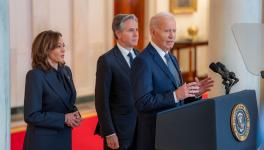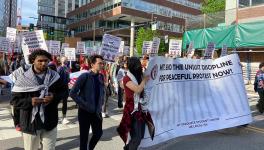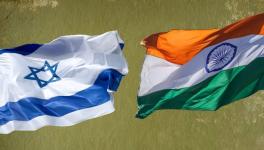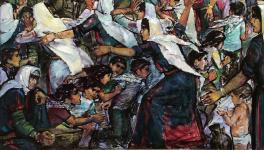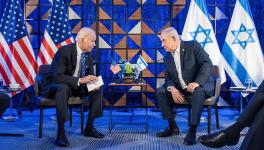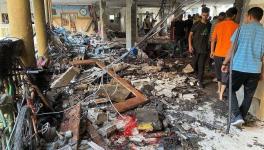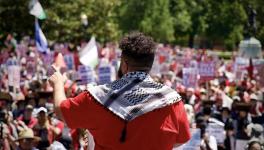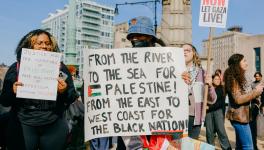What is at Stake in Myanmar’s Ongoing Election

An important electoral battle is taking place on Sunday 8 November in geo-strategically important Myanmar. Situated between the world’s most populous countries, China and India, the result of the country’s popular vote is largely seen as preordained in favour of the Aung San Suu Kyi-led National League for Democracy, which won a landslide victory in 2015.
A number of factors including Covid-19 have intervened in 2020, with the result that this year’s campaign has been ignored by the international press. Many human rights organisations have alleged that the ongoing electoral process in Myanmar has been undermined by systemic problems and rights abuses that will deprive people of their right to fairly elect their government.
Polling in 56 of Myanmar’s 330 townships, in whole or in part, has reportedly been called off due to fear of mass violence. The stateless Rohingyas were disenfranchised in the 2015 election, which led severe global condemnation of Suu Kyi. But the Rohingya will not be able to vote even in this election. The last time they voted was in the 2010 election. Over 7,00,000 Rohingya were displaced as they had to flee Myanmar during the NLD’s rule in the backdrop of disproportionate military reaction against terrorist strikes in 2016 and 2017. The leftover Rohingya in the Rakhine state of Myanmar, now numbering just around half a million, have been disenfranchised.
The first term of the NLD has left the country even more divided than before. Apart from the military, majoritarian populism counts as one of the main impediments to create an inclusive, peaceful and united Myanmar. Suu Kyi is still the most popular leader in the country and it is very unlikely anyone could have beaten her party even if these elections were free and fair. This is because of her party’s immense popularity among the ethnic Burmans, who constitute nearly two-third of Myanmar’s voters.
In 2017, during NLD’s rule, Rakhine emerged as a key national security threat as well as the principle human rights concern for the international community. At the height of the Rohingya crisis in August of that year, Suu Kyi, once a human rights icon, accused international aid workers of providing food items to “terrorists” and appeared before the International Court of Justice on 11 December 2019 to defend her country’s military which was accused of genocide over its actions against Rohingya people in Rakhine. However, the NLD rule also needs to be judged within the more granular context of the domestic and external challenges of the country.
In her first term, Suu Kyi has avoided open confrontation with the military. The reason is that by the writ of the Constitution (drafted in 2008 by the military), the military nominates 30% of the Members of Parliament. No amendments can be passed without the approval of 75% of the members of Myanmar’s Parliament. Such are the rules that Suu Kyi herself was denied the chance to be president in 2016, for having married a British citizen. This was owing to a constitutional provision, 59(d), which says that Myanmar’s president must be someone who “he himself, one of the parents, the spouse, one of the legitimate children or their spouses not owe allegiance to a foreign power, not be subject of a foreign power or citizen of a foreign country”.
To circumvent this provision, Suu Kyi created the position of “State Counsellor”, a position borrowed from the Chinese system of governance. In practice, since then, she has exercised the powers of the head of government and is the face of the ruling party for the international community as de facto Foreign Minister. Her party made several vain attempts to civilianise the polity, though there has been no tangible progress so far.
Isolated from the rest of the world, and next door to rising power China, Myanmar under the NLD and Suu Kyi ensured a more vigorous foreign policy engagement with Asian neighbours other than China. These engagements could help the country mirror the economic growth models of its East Asian neighbours. Suu Kyi actively engaged with Japan, Singapore and South Korea, which pumped in FDI in the urban and rural sector. Apart from continuing various economic projects with India, particularly in Rakhine state, Tatmadaw [the official name of the Myanmar armed force] maintained close links with the Indian security establishment to assuage the latter’s security concerns in the North East. India recently announced to sell Soviet-era Kilo-class submarine to Myanmar and open high-tech IT centre at Myitkyina in the Kachin area, which adjoins China.
The country’s two main domestic challenges are the Rohingya crisis and the issue of national reconciliation with ethnic minorities, which would require Myanmar to adopt the idea of a more inclusive concept of citizenship. For this, weeding out the colonially-constructed political identity on the basis of race is a pre-requisite. The 2008 Constitution remains in operation, which limits the scope of citizenship. It has 135 national races enshrined—and only the Rohingya are excluded from this list. The authorities in Myanmar argue that the Rohingya are not a distinct ethnic group and that they are “Bengali”. However, even for other groups, the list perpetuates a de-facto racial and social hierarchy.
Almost one-quarter of Myanmar’s population hosts one or more ethnic armed organisations (EAOs) that are a challenge to the authority of the central government. Suu Kyi led the National Reconciliation and Peace Centre, constituted by her on assumption of power, to hold political dialogue with ethnic groups. Parallel to this, the Tatmadaw continued negotiations with the same groups, either bilaterally or with their alliances, mostly focusing on the military component, including the intricate and complex modalities of a potential ceasefire.
However, little changed on the ground as a tangible political initiative was lacking. Even in Rakhine, which is largely seen from the lens of the ongoing Rohingya crisis, the Arakan Army (Arakan are Buddhists, but ethnically distinct from Burman Buddhists) renewed its fight against the Tatmadaw in the last quarter of 2018, thus creating a multi-dimensional conflict.
For all these reasons the upcoming election has its own significance for Myanmar and the region. This may possibly be Suu Kyi’s last electoral campaign as she is seventy five and has generally not been in good health. She has silenced her critics, in the establishment and even outside, who questioned her administrative ability and implicitly remarked that only the military had the capacity to run the country. However, like many other popular leaders, who once fought and struggled for democratic ideals, she has failed to formulate and execute a gradual succession plan in her party.
The author is a political analyst and former member of the United Nations Secretary-General’s Good Offices on Myanmar. The views are personal
Get the latest reports & analysis with people's perspective on Protests, movements & deep analytical videos, discussions of the current affairs in your Telegram app. Subscribe to NewsClick's Telegram channel & get Real-Time updates on stories, as they get published on our website.









